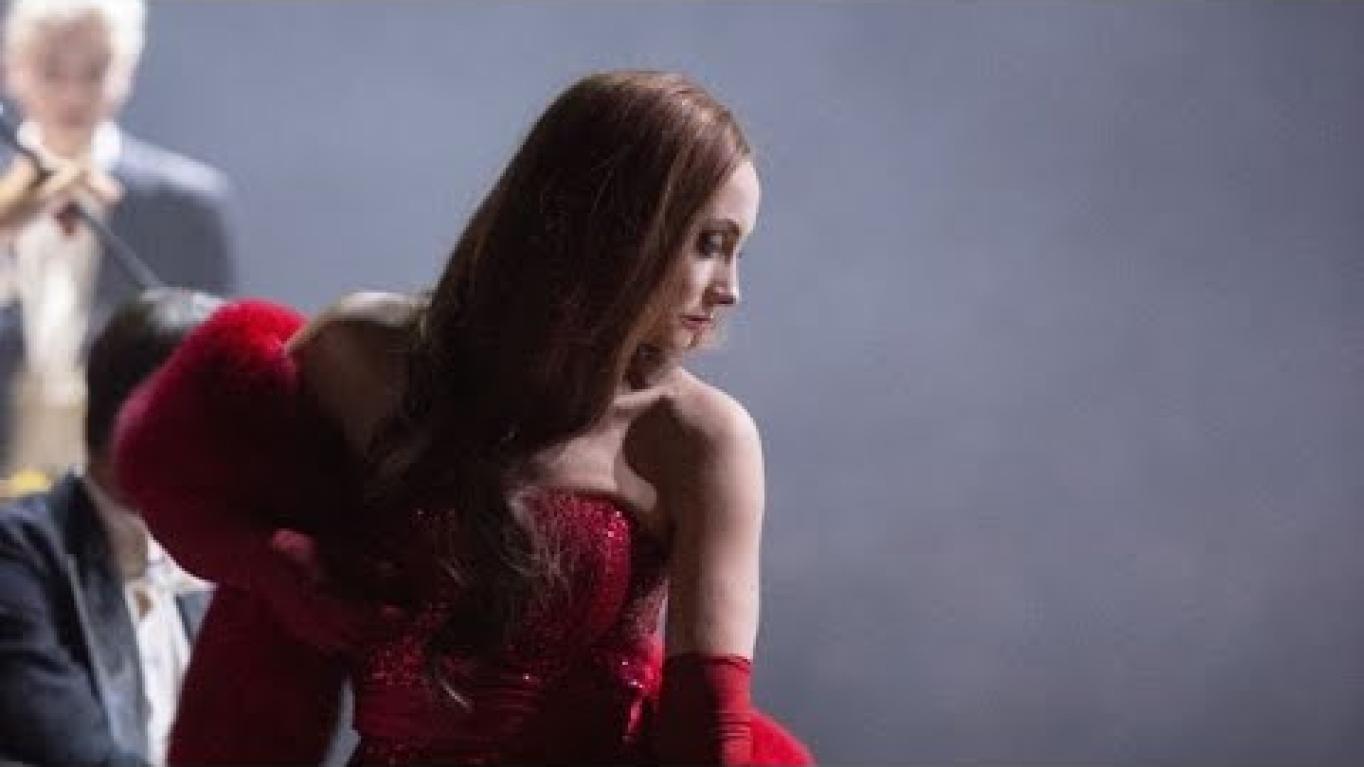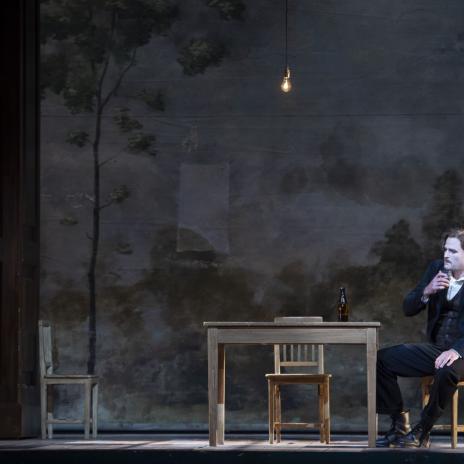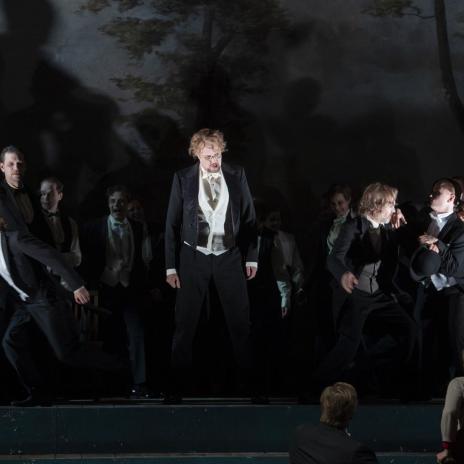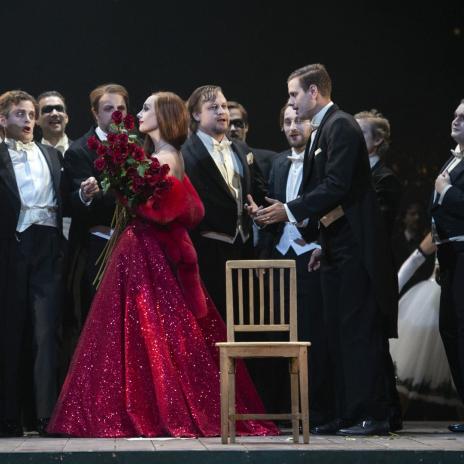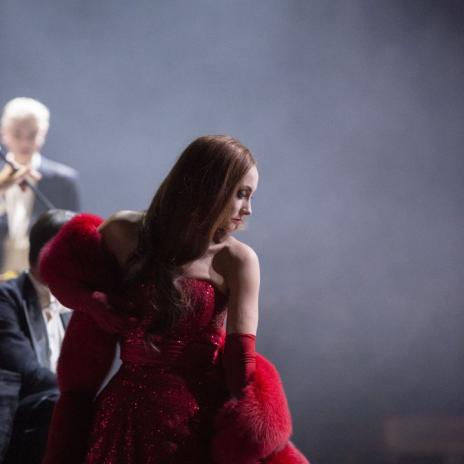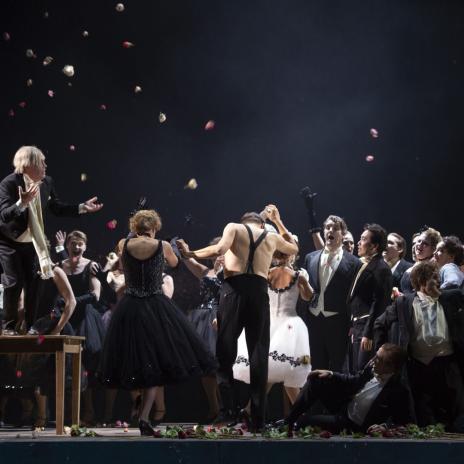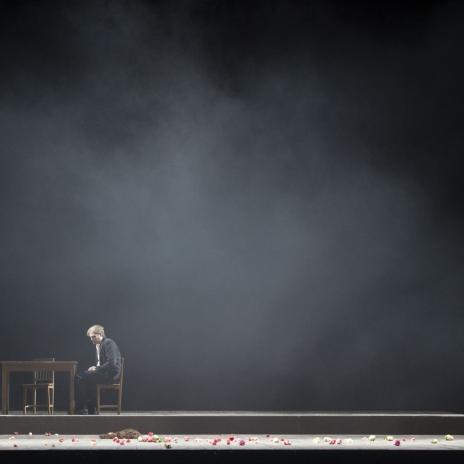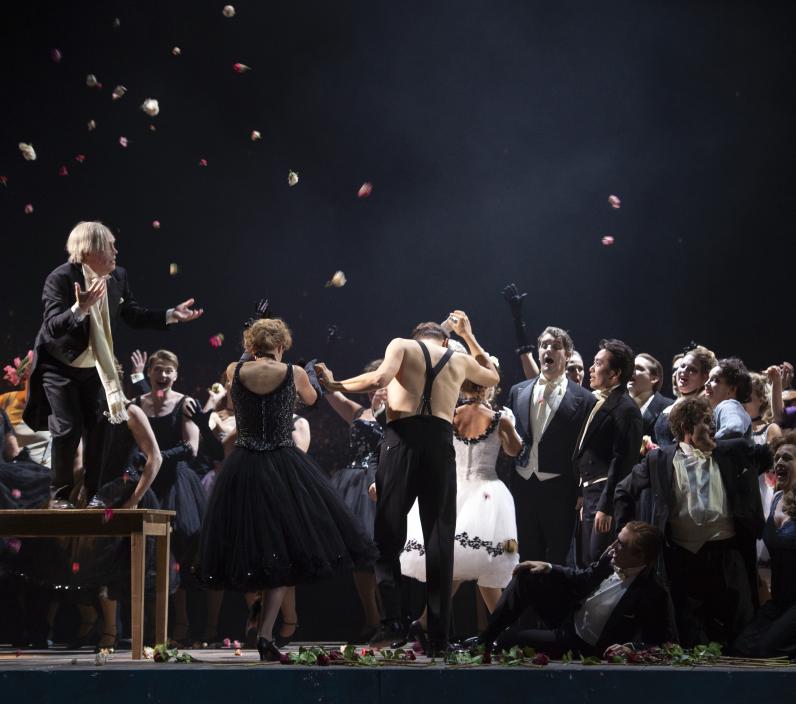

Love, fate and obsession
Love, fate and obsession all play their part in Franz Schreker’s Der ferne Klang. Christof Loy explains why he finds the opera so fascinating and what he learnt while directing this new production at the Royal Swedish Opera.
Over the past year, I have directed three operas about artists themselves: Richard Wagner’s Tannhäuser, Richard Strauss’s Capriccio and now Franz Schreker’s Der ferne Klang. These have all furthered my understanding of the creative process. It is easy to say that these operas are only about composers and their problems, but creating a work of art is a symbol for creating one’s own life. It is about the choices we make. It is a constant struggle to make the right decisions, and sometimes we make the wrong decisions, both in life and in art.
Fate is a strong ingredient in Schreker’s world. Most people associate the word ‘fate’ with something evil, like being born under an unlucky star. While in Grete’s case it is about her family situation, for Fritz it is a creative crisis in his professional life that leads to his self-destruction. The fairy-tale aspect of the opera transforms the forces of evil into roles. The old lady who cheats Grete in Act I, and Dr. Vigelius, who is almost like a Mephistopheles, are the most overtly evil characters. But even one that seems ordinary, like Rudolf, drives Fritz to the abyss.
It is interesting that we talk about fate as something evil and never look at it as something positive. It is undeniably an important theme in the opera, but Grete and Fritz must also fight hard to understand what the love they have for each other is all about. In the end, everything positive is related to the personal choices they make. I always feel that Act III leads to a kind of catharsis, primarily for Fritz and Grete but also for the audience.
When Fritz finally realises that finding ‘the distant sound’ will not bring him the success he had longed for, he gets a shock. But this shock sets him free to find inspiration from elsewhere. When he tells Grete in Act I that he has to go out into the world to find the sound, his impulse is right. The problem is that he travels to find inspiration in a superficial way. He is too close-minded. We can all recognise ourselves in him, we all look for inspiration in a superficial way and fail to find it. Then when we give up, we find what we were looking for all along. For Fritz, this failure is part of his process of healing.
Grete, meanwhile, longs to be loved by Fritz, but when he is gone, the longing remains. Like Violetta in Giuseppe Verdi’s La traviata, Grete makes an unfortunate choice when she follows the old lady, who turns out to be procuress and turns her into a courtesan. Grete’s catharsis moment also comes in Act III, when she sees herself depicted on stage in Fritz’s opera. When it’s over, Dr. Vigelius asks her, ‘Aren’t you Gretel? Gretel Graumann?’ And then she can say ‘Yes, that’s who I want to be.’ It’s a touching moment.
With La traviata, Verdi was pursuing a political and social agenda by criticising the demoralising system of prostitution and the unfair treatment of women. When I first read about Der ferne Klang and studied it, I thought that the erotic element was shown superficially and glamorously, almost disgracefully, but now that I have physically experienced Schreker’s music, I think he in fact had the same concerns as Verdi. It’s a mistake to think he wanted to glorify this sexual universe; rather, he wanted to show what miserable lives these girls have.
Schreker gave a musical voice to all these characters. With every beat, you sense their obsessions. There is not a single superfluous note in the score, because everything has its dramatic purpose. That is what we can say about all the great composers: they allow us to explore the human condition because they have found a musical language to communicate the hard choices that individuals have to make.
This text is based on an interview that Christof Loy gave to Katarina Aronsson, Dramaturg and Programme Manager at the Royal Swedish Opera, which first appeared in the programme book for Der ferne Klang in October 2019.
